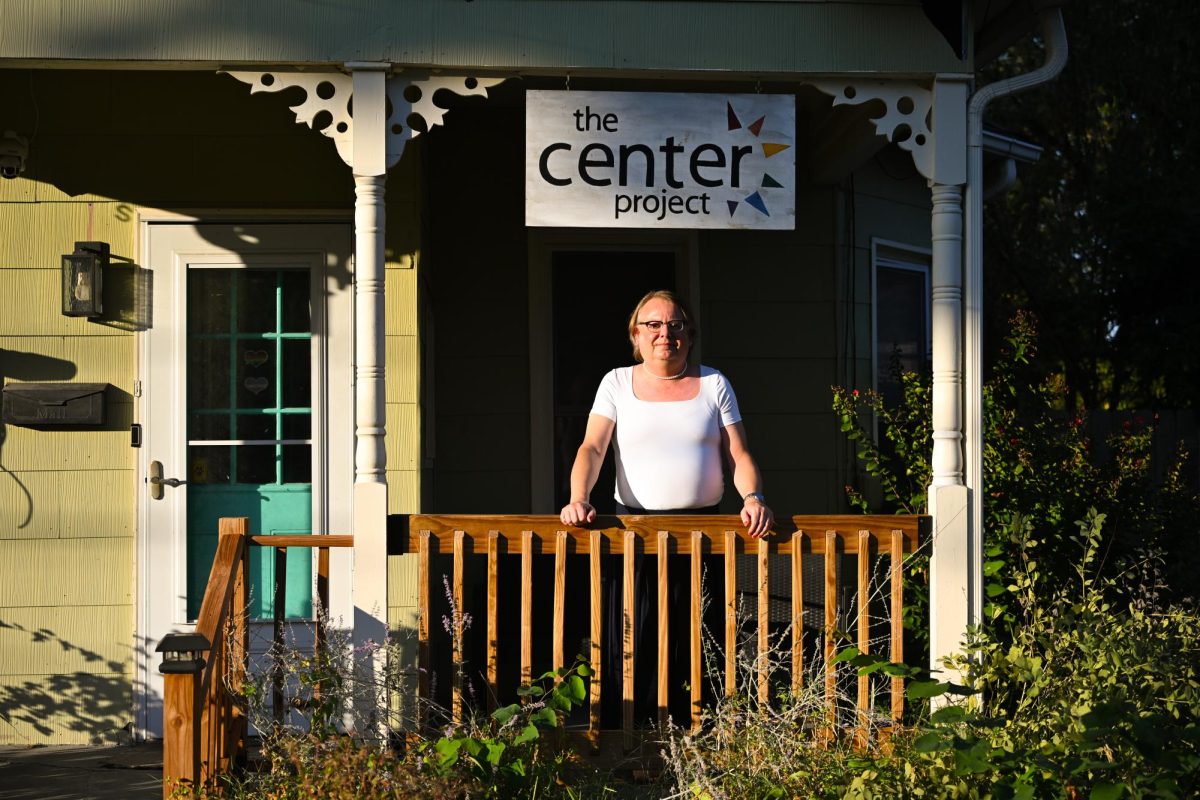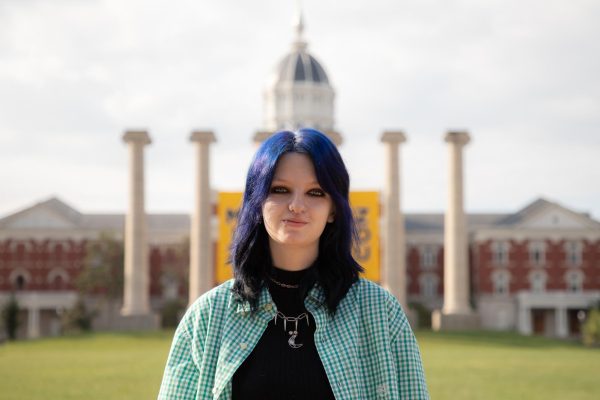On July 26, Jaye Trotter, a substitute teacher for Columbia Public Schools, publicly came out as nonbinary transfemme on Facebook. For Trotter, coming out wasn’t about becoming someone new; it was about finally getting to exist fully. Trotter’s coming out began quietly, at home, in the small moments where they could wear what felt right without needing to explain it.
“Before I fully came out, I would wear skirts and dresses around the house,” Trotter said. “And, it just felt normal for me.”
For some, being nonbinary transfemme means moving through the world beyond the labels of male and female. The ease of feeling at home in their own body had been missing for much of Trotter’s life.
“I had a lot of childhood memories of just … feeling like I wasn’t in the right skin,” Trotter said.
Years of reflection and questioning, shaped by the church culture they grew up in, where gender and faith were often at odds, made self-acceptance a longer journey for Trotter. About two decades ago, Trotter made a promise to themself.
“I didn’t want to live my life as a hypocrite, especially coming out of the church culture where I saw a lot of hypocrisy, and I just did not want to be that type of person,” Trotter said.
For Trotter, that hypocrisy meant watching people preach love and acceptance while condemning anyone who did not fit their idea of normal. Trotter recognized how easily that kind of thinking could turn inward and how critiques from others could become self-judgment. Over time, Trotter reached a place where they could finally be themself.
“I feel more confident in my own skin,” Trotter said. “I feel like I’m seeing the person I’ve always wanted to be.”
Now, as a substitute teacher for Columbia Public Schools, Trotter carries that confidence into the classrooms they are assigned. After graduating from the University of Missouri in 2004, they chose to stay local. Despite Trotter often moving from school to school, it stood out to them how the high schoolers are often accepting.
“Fortunately, I spend most of my time in high schools, and those kids, they’re like ‘Whatever,’” Trotter said. “… They’re probably LGBTQ+ themselves, or, in almost every case, have friends that are LGBTQ+. So for them, it’s just a Tuesday.”
For Trotter, being in a classroom where students see them as a teacher was a quiet victory.
“I feel like I’m respected,” Trotter said. “That’s the big thing — I’m respected, I’m treated as normal, and they care more about my character than anything else regarding identity.”
Outside of school, things are not always that simple. Some interactions, especially online, have forced Trotter to protect their peace.
“I have had to block a few folks on social media just because they’re not understanding or just saying mean, hateful things,” Trotter said. “Instead of engaging, … I’m like, ‘Okay, I’m not gonna engage. I’m just gonna block.’ I don’t need that negativity in my life. The world’s bad enough as it is.”
Through the pressures of public visibility and the relief of living authentically, Trotter has kept one thing sacred: expression — in fashion, language and identity.
“I’m a firm believer in the First Amendment,” Trotter said. “I have the right to express myself. Not just through words and thought and video, but also through my appearance and gender identity.”
That belief in authenticity extends beyond their personal life. Trotter also serves on the board of The Center Project, mid-Missouri’s LGBTQ+ community center located in Columbia. The organization provides resources and support groups for LGBTQ+ individuals, creating a space where people can connect, learn and feel seen. Through that work, Trotter often encounters misconceptions about the trans community.
“I think the biggest misconception is that (transgender individuals) want to convert everyone to being transgender, Trotter said. “It’s like, no. We just focus on ourselves.”
Coming out later in life is part of a long, deeply personal evolution. One built on patience, courage and the quiet resolution to live truthfully after years of waiting to be seen.



